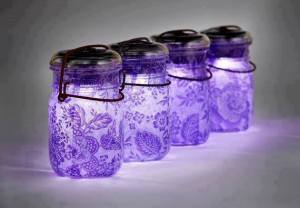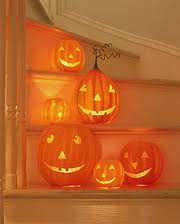Heathenry in Victoria and Australia is a growing practice, a fellowship that is increasing in knowledge and numbers. Ásatrú and Odinism are a part of a growing community, descendents of Scandinavian countries within Australia are bringing back the worship and reverence of the Norse Gods; often times, it has been inspired by Tolkien. One thing about being Heathen in Victoria, you actually have the pleasure of living in a landscape that feels the colder temperatures similar to Northern Europe. That’s a good excuse to wear the right clothes, a woollen tunic or dress, cloak and hood, and hold your bonfire rite in a pine forest.
Yule is to be celebrated in the Northern Hemisphere in the next two weeks, and for some Heathens, sumbel will be celebrated.
Sumbel (also symbel, or sumbal) was a holy ritual conducted during a blót, a feast or meal by the Norse people in days of old. Sumbel is toasting with a drinking horn – often carried out at the end of a ritual or feast. A drinking horn filled with alcohol – usually mead, but whatever you want, is passed around the room clockwise. It was more solemn than average drinking. Each person choosing to be involved in sumbel will drink and toast in three rounds. These rounds can vary per gathering, desires, and needs. Headed by the Gothi (goði) or Gythia (gyðja) – the holy people – gothi being a priest, and gythia a priestess, the horn is passed around three times each with a different toast.
Often the rounds consist of:
- Round 1: To the Gods and/or the Goddesses
- Round 2: To the ancestors and/or a personal hero
- Round 3: For an Oath, Boast or Toast
1: To toast to the Gods and Goddesses, or the Æsir, you will be raising the horn to whichever God or Goddess sits in your favour at that time. Perhaps you have felt their presence in your life, or you feel an affiliation with them, and wish to thank them. Give your reasons within your speech as to why you speak of them. If you do not like the alcohol, simply pour some onto the ground, the fire, a blessing bowl or anoint your forehead with the ale. Finish your speech with ‘Hail’ and all those in the room will echo you, it’s like an ‘over and out’ sign off of your speech..
2: Toasting to your ancestors or personal heroes – you must give reasons why you toast to them, why they are your heroes at the time. Make sure your individuals are deceased, it is believed to be ill luck to toast an ancestor not yet dead. You may even want to tell a short tale about that hero, a tale that inspires and instils motivation within you, something that might make sense or imitate your life at that moment. Again, finish you speech with a ‘Hail.’
3: In this final round, you will raise the horn in an Oath, Boast or Toast. You may choose one, two or all of these three toasts:
Oath: You may make an oath to do something or improve on something, but be prepared for it to be taken very seriously. Never make an oath on anything you do not expect to be able to complete, the Gods would not want you to be hard on yourself.*
Boast: You may boast about something you have achieved recently, something that you are proud of yourself for.
Toast: You may toast anything or anyone that has brought you happiness in whatever form and has improved your life or well-being, or toast the hosts of the feast and ritual or the attendees.
Don’t forget to say ‘Hail!’
The people present at the feast will listen to your oath and take note of it, as sumbel is a powerful and emotional ritual, you will want to be honest and true to yourself – this oath will be a powerful sacrament – words are very strong, the Æsir are present, and your loved ones and ancestors are there listening. You must be honourable to yourself, so make sure your oath has meaning
to you, and you are capable of implementation.
*Attending sumbel can be quite revealing, you will hear a lot of personal feelings being expressed, have respect for what they say. You may feel the compulsion to reveal much yourself during your toasts, so be prepared to be conveying personal moods and emotions. It is a time of honesty and you will be in a space where people trust each other.
You can choose not to do all of these three things – when you receive the horn, you may simply raise the horn to the Gods, take a drink and pass it on. You are not under any obligation to say anything at all, if you are not comfortable. Some people may not have a God or ancestor to toast to, but they may have an oath or a boast to say. If the horn begins to get quite empty when it reaches you, inform the host or goðar of it and it will be refilled and be blessed by the remaining liquid. Sumbel may end at any time, when those conducting it are ready – may be when the horn is finally drained, all things are said, or the ritual feels to be ending. Sumbel is an open ritual, all people are able to come and go as they please, although the ritual does have a beginning and an end.
Sumbel is NOT a pastime for getting drunk. It is a solemn and serious affair that deserves respect and honour. Those seriously attending sumbel will not want disrespect from heavy drinkers, and may ask those disrespecting it to leave.
Make sure the tip of the horn points down ‘Point down and you won’t drown.’ If the point of the horn is pointing towards the ceiling as you drink, you might find yourself wet with drink, as it will gush out at you rather fast, which can be quite embarrassing. If you can, when you know sumbel is going to be conducted, have a think about what you will say. There is nothing like feeling bad if you have forgotten to say something, even though you should not stress. Often other people’s toasts will remind you to say something when it is your turn. Also do not get too upset if you spill your drink or choke and think it is a bad omen. It will not be, have faith, and you will be satisfied with the sumbel.
Sumbel at Yule
I have attended Sumbel during Yule time, but there is no specific time of the year where it must be done. Our Sumbel was different to the plan above – it consisted of three rounds, but they were only the final round as mentioned above – our first round was a boast to the 12 months past, the second round was an oath made for the 12 months ahead, and our third round was a toast to whatever we wanted. With the dozen or so people in the room, the three rounds went for long enough, you would not want to do any more than that, people often got restless or left early. The final round mentioned in the above list, suggests that you do the oath, or the boast, or the toast, or all three in the same round, saving time.
If you do sumbel once a year at Yule for example, your boast the next time can be a result of the oath you took the previous year, and whether you have honestly fulfilled that oath. An oath in turn becomes a boast the following year. It can be a cycle, if you tend to this ritual annually, and can be very satisfactory.
One person at our Yule doing a boast, said they had not much to boast about, when another member spoke up about how that person just became a grandparent, and should not be so modest. If you are modest, people may pull you up for it and request that you be proud of what you have achieved.

Quaffing will just waste ale. Please take it easy while drinking. Note that the horn tip points up. Not good.
Sumbel in non-Heathen rites
You may not be Heathen, you may not have a drinking horn, but you can still invent your own sumbel ritual. You can use a goblet, toast to your preferred Gods, do three rounds or only one. You could conduct it at dawn, during a rite on midsummer, or during the Celtic New Year at Samhain if you choose. You can use the Strega drink instead. You can do anything! I know people (and I have done this myself on occasions) who conduct a small sumbel during New Year’s Eve instead of getting drunk and wildly partying. They have a relaxing night, and use the midnight celebration to reflect on their past year and plan for the coming one.
You can involve the kids in your sumbel, it can be kid friendly (no alcohol, for example). Kids have boasts and goals as well, you can teach them to set goals this way, and be proud of what they have done.
Sumbel can be become quite a poignant occasion for some people, especially when they make it an annual event. However you chose to conduct it is your own choice, but do not be afraid to make a ritual of it and understand that the Gods and Ancestors will hear you.







 Photo courtesy of Damiana Fortune
Photo courtesy of Damiana Fortune Photo courtesy of Damiana Fortune.
Photo courtesy of Damiana Fortune.








